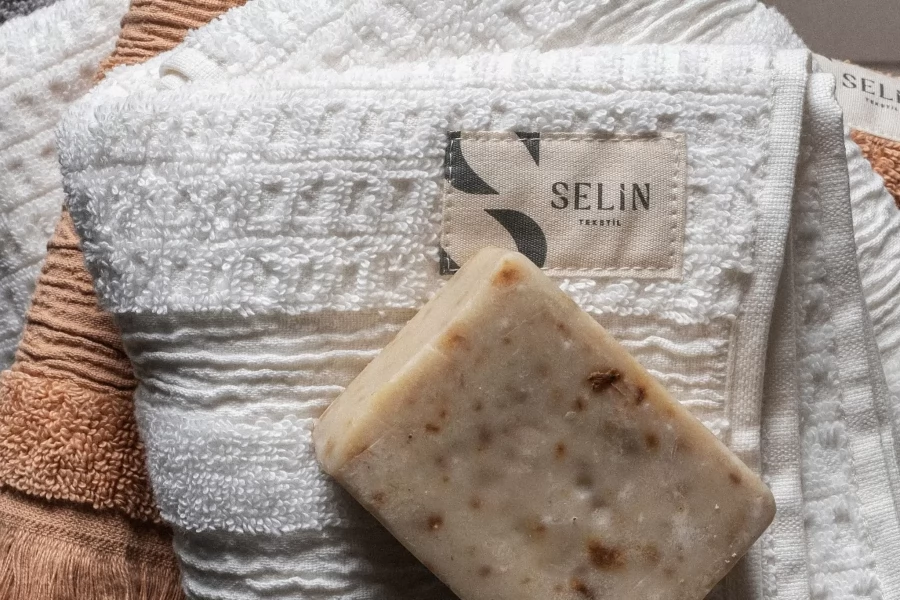What is a Textile Manufacturer? Understanding the Towel Industry
Explore the role of textile manufacturers, the towel production process, and how technology and sustainability shape the industry today.
Tekstil sektörü, giyimden ev tekstiline kadar her şeyi kapsayan geniş bir alandır. Üretilen birçok ürün arasında havlular günlük yaşamın vazgeçilmezidir. Peki, bir tekstil üreticisinin ne olduğunu ve bu ürünleri nasıl hayata geçirdiğini hiç merak ettiniz mi? Bu rehberde, özellikle havlu üretimine odaklanarak tekstil üreticilerinin rolünü derinlemesine inceleyecek ve teknoloji, sürdürülebilirlik ve markalaşmanın sektörde nasıl önemli roller oynadığını inceleyeceğiz.
Tekstil Üreticisi Ne Yapar?
Bir tekstil üreticisinin ne olduğunu anlamak için, çalışma alanlarını bilmek önemlidir. Tekstil üreticisi, kumaş ve tekstil ürünleri tasarlayan, üreten ve dağıtan bir şirket veya tesistir. Bu, pamuk ve yün gibi hammadde işlemeden giyim, yatak çarşafı ve havlu gibi bitmiş ürünlere kadar her şeyi kapsar.
Tekstil üreticileri üretim sürecinin çeşitli aşamalarını yönetirler, bunlar arasında şunlar yer alır:
- Hammadde Seçimi: Pamuk, bambu veya keten gibi yüksek kaliteli liflerin seçilmesi.
- İplik eğirme: Ham elyafın ipliğe dönüştürülmesi.
- Dokuma veya Örme: İplikten dokuma veya örme teknikleri ile kumaş oluşturma.
- Boyama ve Terbiye: Kumaşa renk, desen ve terbiye işlemlerinin eklenmesi.
- Kesme ve Dikim: Kumaşın havlu, bornoz veya çarşaf gibi son ürünlere şekillendirilmesi.
Tekstil üreticisinin ne olduğunu incelediğimizde, her gün kullandığımız yüksek kaliteli tekstil ürünlerine hammaddeleri dönüştürmekten sorumlu oldukları açıkça görülür.
Özel Odak: Havlu Üretimi
Tekstil sektörünün en önemli alanlarından biri havlu üretimidir. Havlular, maksimum yumuşaklık, emicilik ve dayanıklılık için özel teknikler gerektiren temel ev eşyalarıdır.
Havlu konusunda uzmanlaşmış tekstil üreticileri, olağanüstü kaliteleri nedeniyle genellikle Türk pamuğu veya Mısır pamuğu gibi malzemeler kullanırlar.
Havlu üretim süreci şunları içerir:
- Malzeme Seçimi: Uzun lifleri ve yumuşaklığı nedeniyle yüksek kaliteli pamuk seçilmiştir. Özellikle Türk pamuğu, dayanıklılığı ve yumuşak dokusu nedeniyle oldukça değerlidir.
- İpliğin Eğirilmesi: Ham pamuk, güçlü ve emici olan ince ipliğe dönüştürülür.
- Dokuma: İplik, su emilimini artıran ilmekler oluşturmak için havlu dokuma teknikleri kullanılarak dokunur.
- Boyama ve Terbiye: Havlular çeşitli renklerde boyanır ve yumuşaklık ve çekme direnci için işlem görür.
- Kalite Kontrol: Her havlu paketlenmeden önce kıvamı, yumuşaklığı ve emiciliği açısından kontrol edilir.
Havlular bağlamında bir tekstil üreticisinin ne olduğunu anlamak, bu günlük temel ürünlerin yaratılmasında gösterilen işçiliği ve ayrıntılara gösterilen özeni vurgulamaya yardımcı olur.
Tekstil Üretim Süreci
When exploring what is a textile manufacturer, it's important to understand the full textile manufacturing process. This process is intricate and includes multiple stages:
1. Fiber Production: Natural fibers like cotton, linen, or bamboo are harvested, cleaned, and prepared for spinning. In the case of synthetic fibers like polyester, chemical processes are used to produce the raw material.
2. Spinning: The cleaned fibers are spun into yarn. The quality of the spinning process directly impacts the softness and strength of the final product.
3. Weaving or Knitting: The yarn is woven into fabric. For towels, the weaving process often involves terry weaving, which creates the signature loops that improve absorbency.
4. Dyeing and Printing: After weaving, fabrics are dyed in various colors and sometimes printed with patterns. High-quality towels often use eco-friendly dyes that are both vibrant and long-lasting.
5. Finishing: This step includes treatments for softness, shrink resistance, and water repellency if required. High-quality towels are also pre-washed to prevent shrinkage during home use.
6. Cutting and Sewing: The fabric is cut to size and edges are hemmed to prevent fraying. Towels may also be finished with decorative fringes or patterns.
7. Quality Control: Each product is inspected to ensure it meets industry standards for softness, absorbency, and durability.
By understanding what is a textile manufacturer, you gain insight into the complex, detailed processes involved in creating everyday products like towels.
Key Technologies in Textile Manufacturing
Modern textile manufacturing has been revolutionized by technology. When discussing what is a textile manufacturer, it's crucial to recognize the key technologies that enhance efficiency and quality:
- Automated Looms: High-speed looms allow for faster and more precise weaving.
- Computer-Aided Design (CAD): Digital design tools help create intricate patterns and optimize fabric layout.
- Digital Dyeing Machines: These machines use less water and produce more vibrant colors with greater consistency.
- Sustainable Production Technologies: Advanced techniques reduce water usage and chemical waste during production.
These innovations make textile manufacturing faster, more efficient, and more environmentally friendly, allowing manufacturers to produce high-quality towels at scale.
Sustainable Practices in Textile Manufacturing
In today's world, sustainability is more important than ever. To truly understand what is a textile manufacturer, it's essential to explore how the industry is evolving towards eco-friendly practices:
- Organik Pamuk: Birçok üretici, zararlı pestisitler veya kimyasallar kullanılmadan yetiştirilen organik pamuğa geçiş yapıyor.
- Su Tasarrufu: Modern boyama teknolojileri artık çok daha az su kullanıyor ve bu da çevresel etkiyi azaltıyor.
- Azaltılmış Atık: Dijital kesim ve otomatik dokuma kumaş atıklarını azaltır.
- Etik Çalışma Uygulamaları: Sürdürülebilir tekstil üreticileri, tüm çalışanlar için adil ücretler ve güvenli çalışma koşulları sağlar.
Bir tekstil üreticisinin ne olduğunu anladığınızda, sürdürülebilir ve etik üretim yöntemlerinin yaygınlaştırılmasında oynayabilecekleri rolü de takdir edersiniz.
Havlu Üreticileri için Markalaşma ve Pazarlama
Son olarak, bir tekstil üreticisinin ne olduğunu anlamanın bir parçası da markalaşma ve pazarlamanın önemini kavramaktır. Rekabetçi havlu sektöründe, güçlü bir markalaşma bir şirketi diğerlerinden ayırabilir.
- Lüks Markalaşma: Üst düzey markalar, Türk pamuğu gibi malzemelerin kalitesine odaklanarak yumuşaklık ve dayanıklılığa vurgu yaparlar.
- Sürdürülebilirlik Odaklı: Çevre dostu markalar organik malzemeleri ve sürdürülebilir üretim yöntemlerini öne çıkarır.
- El Sanatları İşçiliği: Bazı markalar, otantik ve yüksek kaliteli ürünler arayan tüketicileri çekmek için geleneksel dokuma tekniklerine ve el yapımı detaylara vurgu yapıyor.
Pazarlama stratejileri genellikle malzemenin kalitesi, ürünün arkasındaki işçilik ve ürünün yaratılmasında kullanılan sürdürülebilir uygulamalar hakkında net mesajlar içerir.
Geleneksel yöntemlerle üretilen, lüks için tasarlanmış, birinci sınıf Türk pamuğu havlu koleksiyonumuzu keşfedin. Hemen alışveriş yapın ve farkı deneyimleyin!
